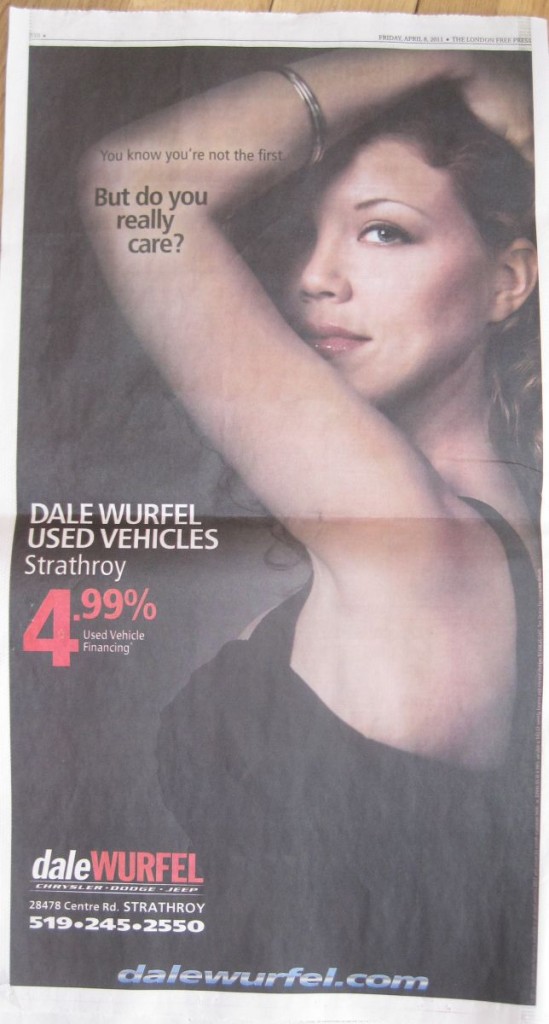Sometimes you just have to laugh. Sex is used to sell the most ridiculous things, like organ donation. It’s like marketers think we’ve Pavlov’s dogs. Show a sexy woman (’cause sexy women = sex) and, rumor has it, people will buy.
When Renée sent in this photograph of a storefront display aiming at selling ovens, I felt compelled to share its ridiculousness with you. Begin snark:
Ovens are hot. Get it. They’re “hot.” LOL. Put her in lingerie, sit her ass on the oven door, add a fire-red wig, and surround her with thermometers. Add the words, “HOT! HOT! HOT!” Maybe if we really overdo it with the metaphor, no one will notice how stupid this is.
Enjoy:
Lisa Wade, PhD is an Associate Professor at Tulane University. She is the author of American Hookup, a book about college sexual culture; a textbook about gender; and a forthcoming introductory text: Terrible Magnificent Sociology. You can follow her on Twitter and Instagram.















